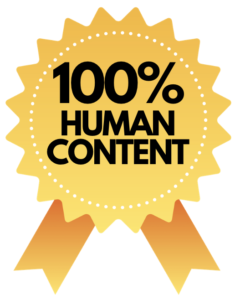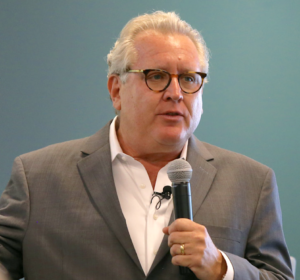
I was honored to have my friend Douglas Burdett, host of the glorious Marketing Book Podcast, talk to me about my new book Belonging to the Brand: Why Community is the Last Great Marketing Strategy.
One of the key challenges we discussed on our podcast episode was the need to adjust from a traditional marketing mindset to a very new strategy that works within a community.
It’s a fascinating conversation, and at the end of the podcast episode, there is a free chapter from my audiobook!
Read about our conversation below, or click to listen to this episode:
Click to hear Episode 264
![]()
This conversation is sponsored by The Creator Economy Expo (CEX)
CEX May 1-3, 2023 is the must-attend experience for content creators interested in building and growing their content-first businesses without relying on social platforms. Join 500+ bloggers, podcasters, authors, newsletter writers, speakers, coaches and consultants, freelancers, and YouTubers at THE learning and networking event for content creators. To get $100 off your ticket, please use the code SCHAEFER100.
![]()
Transcribed by AI with some light editing for clarity and brevity:
Douglas Burdett
I always anxiously await your books because you find some seam in the marketing universe that just torments you, and is tormenting a lot of people. And that obviously keeps you up at night, and you can’t seem to live with yourself until you figure it out and then write a book about it. I appreciate some people pour their careers and their blood, sweat, toil, you know, even marriages into these books. I think it really torments you. What happened this time with Belonging to the Brand?
Mark Schaefer
Often when I write, I get into this flow state — you hear about runner’s high — and literally I get into a flow state, and I will be completely oblivious. Now luckily, I have an office in a little building outside away from my house, so I can enter this flow state in complete peace and quiet but I mean, I tell my wife I’m going to be down for dinner at five o’clock and the next thing I know I look up and it’s 8 pm because I just get in this zone.
 I had an extraordinary discussion with Tom Peters. He told me two years ago, he was retiring. And now here he is with a new book out. And I said well, what’s going on? You told me you had retired. And he said, “you get to a point where you’re desperate to get your ideas out.” It’s like the dog chasing the tennis ball — you don’t give up you just keep going and going, and that’s kind of the way I am.
I had an extraordinary discussion with Tom Peters. He told me two years ago, he was retiring. And now here he is with a new book out. And I said well, what’s going on? You told me you had retired. And he said, “you get to a point where you’re desperate to get your ideas out.” It’s like the dog chasing the tennis ball — you don’t give up you just keep going and going, and that’s kind of the way I am.
And this book, I’ve been stewing on this since 2018 when I was writing Marketing Rebellion, and there was a chapter in there about belonging.
And after I finished the book, I thought that was the most important chapter. When all this other advertising and spam and interruptions fade away. I truly believe that 20 years from now, we’re going to look back at the mass broadcast, the spamming of people and we’ll say, What the heck was that all about? What were we thinking? You know, we’re so glad here we are in the year 2040!
Douglas
Well, let me ask you a question. One of the most important ideas in the book is on page 119. You write that today’s consumers will block you, ban you, and run away from you. If they sense you’re trying to manipulate them with your marketing. Instead of sell, sell, sell. You need to help Help Help and another part in the book you write that perhaps the most compelling reason to consider a community-based marketing strategy — you may not have a choice. What do you mean? There’s a lot of people that are gonna be upset when they hear that.
Mark
Well, a lot of people were upset when they read Marketing Rebellion!
Douglas
Well, Mark, don’t go changing!
Megatrends behind community-based marketing
Mark
Marketing Rebellion was a wake-up call — when your customers have the accumulated knowledge of the human race in the palm of their hand, they don’t need you to manipulate them anymore. They can really make good decisions. And marketing today is about coming alongside people at their point of need. That’s what we need to be doing now.
Belonging to the Brand is an extension of that. The thing that has nagged at me for a long, long time is this trend in the world around mental health. And about a year ago, I saw this headline in the New York Times. It haunted me. It said, “the loneliest generation” and it was talking about Gen Z, about the isolation, the loneliness, the depression. There was a research report not long ago that showed that 51% of Americans aged 18 to 24 have sought medical help for a mental health condition.
51% — and the average for every other generation is 24%. Including, you know, people with silver hair like you and me. Now, what does this have to do with marketing and community? When you get into the psychology and sociology of community, it is absolutely amazing. We need community!
There’s this great research that started in the 1960s called Identity Theory. There are two big components to what we believe about ourselves. One is what we know about ourselves like, Hey, I’m a good singer, or I like to help people, but the other component is what people in a community reinforce within us.
Another amazing thing about community is the bonding that occurs. The emotion from the friendships in a company community spill over in terms of brand love for the brand, for the company. It’s absolutely amazing.
So there are so many benefits. I note in my book how belonging and connection to a community even has physical health benefits. I’m not saying, “Hey, everybody, create a community and change the world.” I know this is a big problem. I know it’s a very, very complicated problem. But I just want people to think that look, this is a business book. And there are compelling reasons to think about having a community as part of your brand marketing strategy. But guess what? There are also societal implications. There are societal benefits. How many times in our lives as marketers, can we say, “we’re doing something good for our company, but we’re also doing something good for our customers and for society?”
And I didn’t mean to dwell on just Gen Z.
When it comes to longevity, one of the most important things is a sense of belonging because loneliness is one of the greatest killers — even more so than wealth or our genes.
During the pandemic, 85% of adults went to an online community as their number one source of emotional connection. So, I mean, it’s something that’s relevant to everyone.
Sales-based communities fail
Douglas
What are some of the misperceptions of community? I remember at one point in the book, one of the people you interviewed said, this doesn’t mean setting up a Facebook page for your customers. There’s a lot more to it.
Mark
70% of brand communities fail, and the reason is, they’re set up to sell stuff. Now, a community is a place where people will want to gather and to have a successful company or brand community you want people to come together every day every week. They’re not going to want to show up if you’re just trying to sell stuff. So the most important thing is to create this intersection between a purpose and a passion, something that’s in the DNA of your company, and something that’s in the purpose and passion of your customers.
One of the most obvious examples is Patagonia. There’s no question in anyone’s mind that Patagonia stands for responsible recreation and taking care of the environment. My friend, Matthew Sweezy, who’s one of the co-hosts here on the show, told me that he only bought Patagonia because that intersects with his purpose.
I’ve got a whole chapter in the book about this to help companies explore what you can do in your business. What can you do for the world that you could do better with your customers on board with you?
I’ve got a lot of prompts like that to help businesses, and when I say businesses, obviously, this could be nonprofits; any kind of organization can have a successful brand community.
Douglas
Instead of sell, sell, sell, you need to help help help — which is a great question to ask before you take another step. But it was really clear in the book where you write about a number of companies that are really just trying to sell to these folks.
We mentioned when I interviewed you for the Marketing Book Podcast that marketers have a certain muscle memory — many of them go back 100 years.
What’s needed to build a community is different, and it’s like learning how to swing a golf club the other way, in a certain regard.
Community-based marketing mindset
Mark
The new leadership mindset required in a community may be one of the biggest stumbling blocks to success.
Marketing is about seeing patterns and responding in a certain way to those patterns. So in some ways, great marketing really does have muscle memory to it. But when you come into a community, it’s really, really different. And one of the best quotes I think, from the book is a mutual friend of ours. Mark Masters from You Are The Media over in the UK.
He started out with a B2B agency business, and moved into creating this community. Now the community has become the business! That’s how successful he’s become.
And he said, I’ve had to reinvent how I think about leadership, and I’m still learning. He said, it’s a very unsettling process. You want to be a leader. You want to have a vision. You want things to go a certain way. And in the community, the power is getting other people to influence that direction.
When I started my RISE community, I thought oh, here’s what we’ll be talking about. We’ll be talking about personal branding. We’ll be talking about public speaking because that’s what I talk about. Those are the emptiest rooms in my community, because they’ve just taken it another way! The community said no, no, no. This is where we’re gonna go. And it’s better!
Community and measurement
Douglas
It takes a certain amount of humility for people like you to understand that, and I’m not sure everyone has that.
Community managers cower in fear over the M word — measurement. Could you talk about ways of framing how we measure it in terms of brand versus performance?
Mark
Well, I think this is one of the major contributions of the book actually. There’s this statistic that shows I think it’s something like 91% of all community managers say their brand community is contributing to the business, but only 10% can measure it.
So there’s this existential angst that pervades community managers, and when you get into it, oh my gosh, I mean, they’re, they’re trying to measure things in so many creative ways — jumping through all these hoops.
But I don’t really think it’s that hard. The thesis of this book is looking at community through the lens of brand marketing for the first time. Community is not new. We’ve had communities offline forever and online since the very first days of the internet. But almost all of the online communities out there are focused on Customer Self Service. Oh, you have a problem with your software … go to our community and find an answer.
What I’m suggesting in this book, and what all these communities are missing, is that the biggest benefits, the emotional connection, the information, the co-creation, the advocacy, the collaboration, the trust — all these great brand marketing benefits are being ignored.
We can measure Customer Self Service and keeps the accountants happy. So that’s why we focus on that. But they are missing the biggest business gains.
So, in the book, I give a great case study of Gatorade versus Powerade and talk about how these two brands are so different in terms of brand marketing versus direct marketing or maybe performance marketing, which is a lot more measurable.
Social media and mental health
Douglas
Many social media sites are actually contributing to the mental health issues of young people.
Mark
One of the most sickening episodes in my career was about four years ago. Facebook did a big study. They knew their algorithms were creating and accelerating hate and divisiveness and something like 88% of the people who are joining hate groups on Facebook was there because of an algorithmic suggestion!
So the executives of Facebook got together, and they built this team. And they said, here’s this problem, and we got to solve it, and here is a plan. And Zuckerberg ignored it. Buried it. Because hate is good for business at Facebook.
The more hate and the more divisiveness, the more people spend on these platforms. I don’t think there is a solution. I think social media platforms are the source of a lot of the sickness in society. They really have a solution. I don’t think they’re interested in the solution.
Douglas
Does a community require a personal leader? If so, what happens when he or she retires or moves out which I think is a great setup for the ideal community?
Mark
Absolutely. So that’s one of the things I’m so excited about in my community. Again, it’s always a learning process. In my life, I’ve had an audience, and I love my audience they’ve been so good to me. But it’s a cult of personality. If I leave, then the blog’s gone, and the audience is gone.
Community is when people are building relationships with each other. And that is happening in the RISE community, and it’s happening in other communities. Friendships are being created. Bonds, business connections that are going to go on long after me. There are lots of things going on in the community that I’m not even part of. This is going to be part of my legacy.
 Mark Schaefer is the executive director of Schaefer Marketing Solutions. He is the author of some of the world’s bestselling digital marketing books and is an acclaimed keynote speaker, college educator, and business consultant. The Marketing Companion podcast is among the top business podcasts in the world. Contact Mark to have him speak at your company event or conference soon.
Mark Schaefer is the executive director of Schaefer Marketing Solutions. He is the author of some of the world’s bestselling digital marketing books and is an acclaimed keynote speaker, college educator, and business consultant. The Marketing Companion podcast is among the top business podcasts in the world. Contact Mark to have him speak at your company event or conference soon.
Follow Mark on Twitter, LinkedIn, YouTube, and Instagram.
Illustration generated by MidJourney AI.


